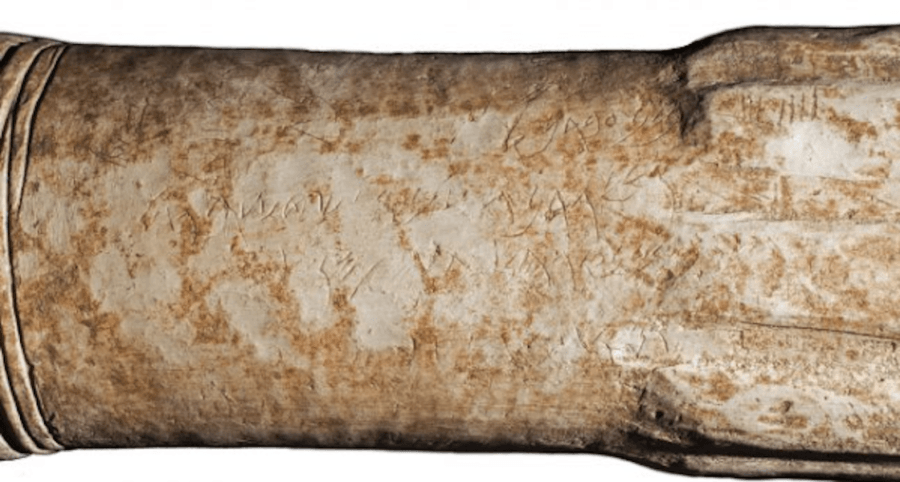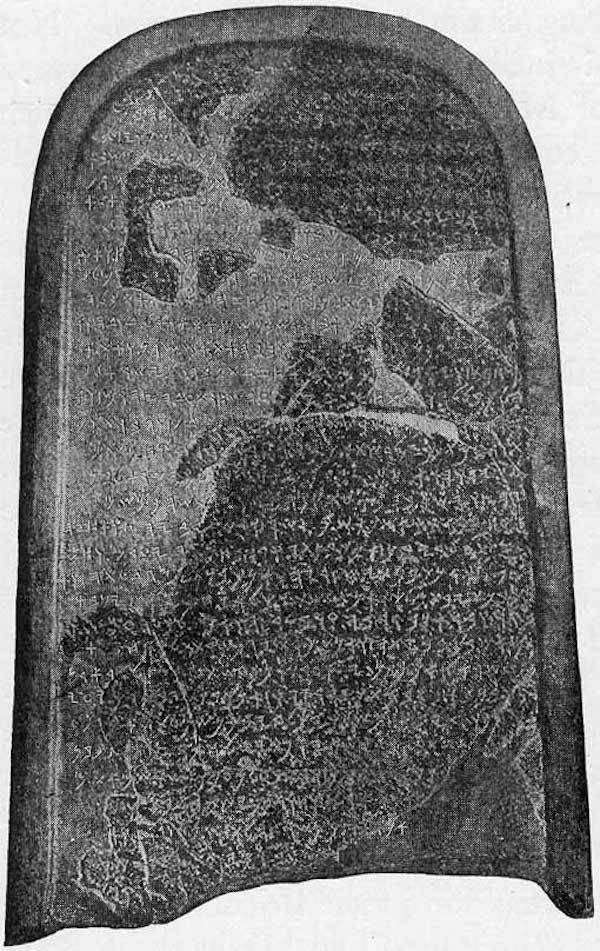Part of the inscription appears to mention bronze that was pillaged after King Mesha's conquest of the ancient city of Ataroth, a war explicitly mentioned in the texts of the Hebrew Bible.

Adam BeanThe 2,800-year-old stone altar and its inscriptions appear to mention the pillaging of ancient Ataroth by King Mesha of Moab.
A discovery in the ancient city of Ataroth — now known as Khirbat Ataruz — in Jordan may shed light on an ancient war described in the bible. According to Live Science, a 2,800-year-old inscribed stone altar was found in a Moabite sanctuary in the city.
Researchers believe that the altar dates back to a time after Mesha, king of Moab, successfully led a rebellion against the Kingdom of Israel and conquered ancient Ataroth which was then under Israel’s rule.
The altar that was uncovered shows two distinct inscriptions: one is a text in the ancient Moabite language, which is very similar to Hebrew, and the other is numerals written in Hieratic, an ancient Egyptian writing system. Archaeologists believe that these inscriptions may describe the events of the Mesha-led rebellion.
The 2,800-year-old inscriptions are still being deciphered by archaeologists, but researchers agree that one of the two writings on the ancient altar seems to be about bronze treasures that were pillaged after Mesha’s takeover of Ataroth.
“One might speculate that quantities of bronze looted from the conquered city of [Ataroth] at some later date were presented as an offering at the shrine and recorded on this altar,” researchers noted in the paper about the altar’s discovery that was published in the journal Levant.
The second part of the inscriptions proved more difficult to read by scientists, but the translation seems to write that “4,000 foreign men were scattered and abandoned in great number.” Another part of the text written in Moabite cites “the desolate city,” possibly a reference to the fallen Ataroth.
The uncovering of the inscribed ancient altar is significant given that the rebellion and subsequent conquest of Ataroth by King Mesha is mentioned in the Hebrew Bible.
In it, King Mesha is said to have been obligated to provide the Kingdom of Israel a tribute of thousands of lambs along with vast quantities of ram wool. Eventually, King Mesha rebelled against the Kingdom of Israel’s control and seized Ataroth.
Moab was an ancient kingdom located in the southern part of modern-day Jordan.

Wikimedia CommonsThe ancient Mesha Stele tablet that also has inscriptions written in Moabite on it.
The first interaction between Moab and the Kingdom of Israel is believed to have occurred in 1452 BC. Later, the Kingdom of Moab, under the rule of King Eglon, attacked the Israelites, leading to eighteen years of Israel paying tribute to Moab. It wasn’t until Israel’s King David conquered Moab that the latter would have to pay tribute to the Kingdom of Israel instead.
Incredibly, the ancient altar, which had been originally discovered on the excavation site of Khirbat Ataruz back in 2010, is not the first historical relic unearthed by scientists that mentions King Mesha’s rebellion.
In 1868, an ancient relic known as the Mesha Stele — an inscribed three-foot-tall black basalt stone tablet that dates back to 9th century B.C. — was dug up in Dhiban, Jordan. Since its discovery, researchers have been trying to decipher the ancient writing on the tablet which is also in Moabite.
Some archaeologists claim that the inscriptions on the Mesha Stele talk about how King Mesha ravaged the city’s inhabitants during his conquest of Ataroth, and the existence of a biblical figure known as King Balak. However, the severe damage on the ancient tablet has caused much of the writing on it to be illegible, so historians and biblical experts have tempered interpretations of the Mesha Stele.
Similarly, researchers involved in studying the ancient stone altar note that much “remains unclear about this inscription.” Nevertheless, the newly discovered inscriptions, the study acknowledges, provide “a new important historical witness” to the time of kingdoms past.
Now that you’ve read about the discovery of the 2,800-year-old inscribed altar that discusses a biblical war, learn how scientists uncovered the descendants of the ancient Canaanites who were thought to have been wiped up. Next, read about the legend of the real sword in the stone and the person it belonged to.




